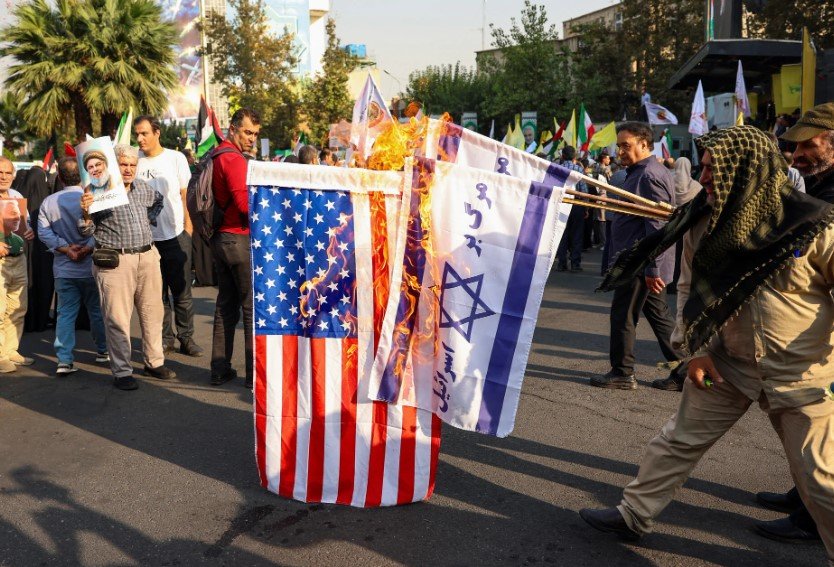As the bombs pause and rhetoric flares, the Middle East stares into an uneasy silence—and Wall Street is watching every word
Twelve days of chaos, over 600 deaths in Iran, and missiles raining on both sides. Then, a ceasefire. Brokered not by the UN, but by Donald Trump—yes, that Donald Trump—working with Qatar, of all places. The world exhaled, for maybe a minute. Because almost immediately, the quiet broke again.
Israel struck a radar site outside Tehran. Iran fired off denials. Trump cursed on social media. Oil plunged. And nobody—not in Jerusalem, not in Tehran, not on Wall Street—seems sure where this is going next.
Radar Boom in Tehran: The Ceasefire Cracked Within Hours
It was supposed to start at 5 a.m. GMT. But just hours into the ceasefire, Tehran residents reported two loud explosions on the city’s western fringe. By midday, satellite photos confirmed the damage: a military radar post, likely linked to Iran’s central defense net, smoldered under dust.
Israeli officials didn’t shy away. One Defense Ministry spokesperson said, flatly, “Iran broke the rules first. We answered.”
Iran pushed back just as fast. Its Foreign Ministry said claims of missile launches were “fabricated nonsense.” Tehran’s tone was serious but not yet escalatory.
For people living under sirens and shattered windows, the ceasefire already felt like a technicality.

Trump’s Profanity-Laced Rebuke Shakes Tel Aviv
Trump didn’t hold back. In a series of unfiltered Truth Social posts, he lit into both sides—but saved the harshest words for Israel.
“What the f*** are they doing?” he wrote. “Don’t drop bombs. Bring your pilots home, NOW!”
That came after a reportedly heated phone call with Israeli Prime Minister Benjamin Netanyahu. A Trump aide later said the former president warned of “full diplomatic freeze” if Israel didn’t stand down. Netanyahu’s office declined to comment.
But the tone was clear. Trump wanted credit for ending the war—and he wasn’t going to let an airstrike ruin the photo op.
Qatar’s Quiet Diplomacy: The Other Half of the Deal
The truce wasn’t just a Trump show. Qatar’s Prime Minister, Sheikh Mohammed bin Abdulrahman Al Thani, reportedly spoke directly with Iranian counterparts in the early hours of Tuesday.
The Emir’s team has been central to U.S.-Iran backchannel talks for over a year now, but this time it was more public. A Qatari official told Reuters the nation “helped bridge critical gaps.”
And it showed. Iran’s President Masoud Pezeshkian waited hours to comment—but when he did, he said Iran would honor the truce “as long as Israel holds back.”
The truth is, neither side wants a war they can’t win.
Civilians Pay, Again: Over 600 Dead in Iran, 28 in Israel
This wasn’t just missiles and policy memos. Whole families were lost in Shiraz, Qom, and Beersheba. Iranian officials say 13 children died in one single strike on a residential tower. Israel says two schools were hit by Iranian rocket fire.
It’s a body count no side can easily justify.
Here’s a quick breakdown of the reported casualties and damages:
| Location | Deaths Reported | Key Infrastructure Hit |
|---|---|---|
| Iran (Tehran, Shiraz) | 611+ | Nuclear site, comms base |
| Israel (Beersheba) | 28 | Power grid, residential hub |
| U.S. Base in Qatar | 0 | Claimed Iranian retaliation |
One Iranian nurse at Imam Khomeini Hospital said it bluntly: “No one cares if it’s a ceasefire or not. We’re just counting the dead.”
Oil Nosedives, Gold Tumbles, Sensex Wobbles
Markets hate uncertainty—and they got plenty of it.
Oil on the MCX dropped 8.48% Tuesday, tumbling from ₹6,046 to ₹5,533 per barrel. Gold wasn’t spared either. August futures fell by ₹2,606 per 10 grams, sliding to ₹96,782.
Indian stocks had a rough ride too.
-
Sensex fell over 1,100 points from its peak during the day
-
Nifty 50 cracked below 25,000 before clawing back marginal gains
-
Defense stocks spiked briefly, then settled flat
Investor chatter was focused on two words: “nuclear site.”
Even rumors of another Iranian facility being prepped for attack were enough to cause ripples on the NSE.
Airspace Reopens, Tentatively
Iran’s skies had been closed for nearly two weeks. On Tuesday, that changed—partially.
FlightRadar24 confirmed international arrivals were now permitted into Tehran with prior clearance. Iraq followed suit, easing long-haul air corridors and allowing Emirates and Qatar Airways to reroute via Basra.
One sentence update from the Civil Aviation Organization of Iran summed it up: “Normal flight paths will resume, pending security evaluations.”
Airlines aren’t celebrating. But they’re flying again.
The Nuclear Wildcard: Rhetoric, Reality, and Resilience
Israel insists it struck a blow against Iran’s nuclear ambitions. Lt. Gen. Eyal Zamir said Iran’s program was “set back by years.”
Trump echoed that sentiment at a campaign event, saying, “They won’t be rebuilding anytime soon. Not with what we did.”
But Iran’s Atomic Energy chief Mohammad Eslami gave a different story.
He claimed the country’s infrastructure was decentralized long ago and could “operate uninterrupted, regardless of localized damage.”
Nuclear analysts say Iran has expanded underground facilities and mobile centrifuge units since 2022. Even major hits might not cripple its full capability.
Still, perception matters. And Israel’s message to Tehran was loud: “We know where to hit you. And we still can.”
People Just Want It to End
On the ground, no one’s calling this peace. Just a pause.
A Tel Aviv shopkeeper said he’s lost two cousins, both in army reserve. “This war, this deal—it’s politics. We just want life back.”
In Tehran, a 22-year-old architecture student pointed to her cracked windows and said, “Better broken glass than broken bodies.”
